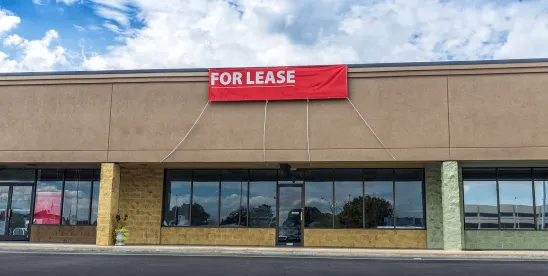Insider lease agreements, where a property owner leases assets to a related entity, are prevalent in real estate-based businesses. While these arrangements can offer tax advantages and liability protections, they also present intricate ethical and legal challenges, particularly in bankruptcy scenarios. This article delves into the nuances of insider lease agreements in the context of bankruptcy exploring ethical considerations, and providing best practices for attorneys and business owners.
Definition of ‘Insider’
Bankruptcy Code Section 101(31) defines an ‘insider’ to include relatives, general partners, and directors or officers of the debtor. Understanding this designation is critical, as insider transactions face heightened scrutiny and potential challenges from creditors and trustees.
David Levy, managing director at Keen-Summit Capital Partners, points out that courts apply various non-statutory tests to determine whether a party is an ‘insider’ in a lease agreement. He explains that factors like control, closeness of relationships, and financial influence are key indicators that could lead to heightened scrutiny in bankruptcy cases.
Understanding Insider Lease Agreements
An insider lease agreement occurs when a business owner leases property to a related entity, such as a subsidiary or an entity under common ownership. This structure can be advantageous, allowing for tax deductions and asset protection.
However, it can also create conflicts of interest, especially if the lease terms are not established at fair market value or if the arrangement favors insiders over creditors. Matt Christensen, Managing Partner at Johnson May, notes that insider lease agreements can significantly impact bankruptcy avoidance actions.
True Lease vs. Disguised Financing
It’s crucial to distinguish between a ‘true lease’ and a ‘disguised financing arrangement.’ A true lease involves the lessor retaining ownership of the asset, with the lessee having the right to use it for a specified period. In contrast, a disguised financing arrangement, though labeled as a lease, functions as a secured transaction where the lessee effectively owns the asset and the ‘lease’ serves as collateral for a loan.
Courts scrutinize the substance over form to determine the true nature of the agreement. For instance, a court might recharacterize lease agreements as security agreements based on factors like the lessee’s lack of termination rights and nominal purchase options.
Jonathan Aberman, partner at Troutman Pepper Locke, stresses that courts review insider transactions more rigorously in bankruptcy cases. He advises that ensuring fair market value and independent oversight in lease agreements is crucial to avoiding claims of self-dealing.
Fair Market Value (FMV) vs. Residual Value
Fair Market Value refers to the price at which an asset would change hands between a willing buyer and seller, neither under compulsion and where both have reasonable knowledge of relevant facts. Ensuring that lease terms reflect FMV is vital to prevent allegations of preferential treatment or fraudulent conveyance, especially in insider transactions.
Residual value is the estimated worth of a leased asset at the end of the lease term. Lessees may have options to purchase the asset at this value. Accurate estimation is essential to avoid disputes and ensure compliance with tax regulations.
Lease Provisions
Most leases have certain provisions in place to ensure that the lessor is protected in the event of bankruptcy or other unforeseen circumstances. Below are some common provisions and clauses included in leases:
- Hell-or-High-Water Clauses: This clause stipulates that the lessee’s obligation to make payments is absolute and unconditional, regardless of any difficulties encountered. Such provisions are common in equipment leases to protect the lessor’s revenue stream.
- Force Majeure Clauses: A Force Majeure Clause excuses parties from performance obligations due to extraordinary events beyond their control, such as natural disasters or government actions. The applicability of this clause depends on its specific wording and the unforeseen nature of the event. For example, during the COVID-19 pandemic, courts examined whether government-imposed restrictions triggered force majeure clauses in lease agreements.
- Purchase Options: A Purchase Option grants the lessee the right to buy the leased asset at the end of the lease term, often at FMV or a predetermined price. The specifics of this option can influence the lease’s classification for accounting and tax purposes.
- Maintenance and Return Conditions: Lease agreements typically require the lessee to maintain the asset in good condition and specify the state in which it must be returned. These terms protect the lessor’s residual interest and ensure the asset’s value is preserved.
- Indemnity Provisions: Indemnity clauses obligate one party to compensate the other for certain losses or damages. In leases, lessees often indemnify lessors against liabilities arising from the asset’s use, mitigating the lessor’s risk exposure.
Ethical Considerations
Insider lease agreements raise myriad ethical considerations for the parties involved.
Conflicts of Interest
Insider lease agreements inherently risk conflicts of interest. Attorneys must ensure that such arrangements are transparent and that all parties provide informed consent. ABA Model Rule 1.7 addresses conflicts of interest, emphasizing the necessity for clear client relationships and the avoidance of representing parties with opposing interests within the same transaction.
Duty of Candor
Attorneys also have an ethical obligation to be truthful in dealings with tribunals and opposing parties. This duty is paramount when presenting insider lease agreements in legal proceedings, ensuring that all material facts are disclosed. ABA Model Rules 3.3 and 3.4 outline these responsibilities.
Transparency and Fair Dealing
Full disclosure of insider relationships and lease terms is essential to prevent legal disputes and uphold ethical standards. This transparency ensures that all parties, including creditors, are aware of potential conflicts and can assess the fairness of the transaction.
Samantha Ruben of Dentons’ Restructuring Insolvency and Bankruptcy practice points out that ethical considerations in insider leases can arise when fiduciaries prioritize personal interests over the business entity. She explains that in a distressed situation, these transactions may face higher levels of scrutiny and disclosure from the get-go can be key.
Conclusion
Insider lease agreements, while beneficial in certain circumstances, must be handled with care to avoid ethical and legal pitfalls. By adhering to best practices, ensuring transparency, and complying with legal standards, attorneys and business professionals can mitigate risks and uphold ethical integrity in real estate transactions.
To learn more about this topic view Ethical Issues In Real Estate-Based Bankruptcies / Insider Lease Agreements. The quoted remarks referenced in this article were made either during this webinar or shortly thereafter during post-webinar interviews with the panelists. Readers may also be interested to read other articles about real estate-focused bankruptcy cases.
This article was originally published on here.
©2025. DailyDACTM. This article is subject to the disclaimers found here.




 />i
/>i

